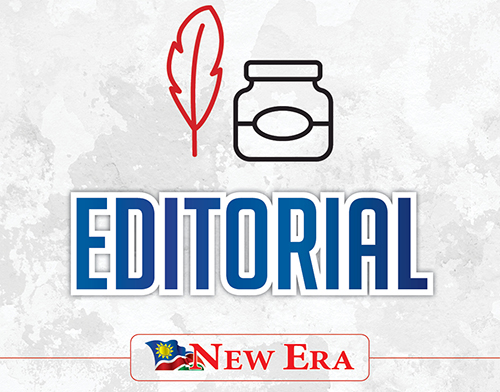IT is a mammoth task to identify a single spot where Namibians from all walks of life can happily converge. However, the kapana stalls at Single Quarters, right in the heart of Katutura, is that place.
As you enter the gates, vendors vociferously promote their braai stands, each of them promising to ‘my father’, ‘sister’, ‘brother’, ‘cousin’, ‘mother’, that his is the best kapana that is fresh, smokey, rich in taste, tender and juicy.
At Kapana, as Single Quarters has become known, the competition is healthy and clients, after being presented with a buffet of options, make an informed decision and choose from which vendor to buy.
The same goes for other delicacies accompanying the kapana, including vetkoek, pap or oshikundu and even salsa!
This editorial is, however, not about food.
Namibia’s Presidential and National Elections are fast-approaching, and political campaigns are now in full swing.
Some politicians are already promising the electorate the proverbial land of milk and honey, wherein hunger and destitution are foreign concepts. Some promises have even exceeded the elastic limits of our record N$100 billion national budget.
In an election context, for a moment, picture the kapana vendors as though they were political parties or independent candidates seeking your vote.
Picture their persuasive marketing or rather, hypnotising tactics deployed from the grill, as the different election manifestos.
The last commonality that can be drawn between kapana and actual national elections is that everyone goes there, irrespective of their position in society.
The same goes for elections, they affect us all.
On voting day, both the CEO and cleaner queue up, braving unfavourable weather conditions, to cast their vote. On that day, all are equal. Everyone’s vote also only counts as one vote.
With this analogy now set, we implore political actors and the public to conduct themselves in a civil manner, to allow for election campaigns – irrespective of the political party or candidate, or geographic location – to take place in a conducive environment, where ideas triumph over personalities.
The recent incident where a member of the ruling Swapo party at Mix Settlement on the outskirts of Windhoek assaulted another member of the same party following a brief altercation, is a stark reminder of how volatile the political environment can be.
It is regrettable, and should have never seen the light of day.
Elections are intended to settle political contests and create the conditions for legitimate government. They are by no means avenues to create fertile grounds for violence.
The Mix Settlement incident, on face value, may appear miniscule.
Shockingly, some leaders of registered political formations went as far as celebrating it, and rewarded the perpetrator with N$1 000 for a “job well done”.
One of those rewarding violence, in a country marred by gender-based violence, was Namibia Economic Freedom Fighters’ economic commissar, forex trader-turned-social justice activist Micheal Amushelolo.
The danger with such reckless acts, particularly by those who jump on every bandwagon, is the subtle message they could be sending to the average Namibian.
Hypothetically, if slapping a lowly-ranked member of the ruling party can earn you N$1 000, what is the reward for slapping a senior government official? These are real questions and possibilities, especially when leaders stoop low to celebrate violence.
Responsible citizens must never sit on the fence, take a wait-and-see approach, when such practices are normalised and celebrated.
Violence must be condemned in the strongest terms possible, and those who perpetuate or proliferate it must be called out.
Regrettably, despite clarion calls for peace and tolerance during the campaign period, it is sad to note that this is hardly emphasised by political leaders, unless they are on the receiving end.
If anything, we should draw inspiration from how we conducted ourselves during the peaceful transfer of power, which exemplified the maturity and resilience of the nation’s democratic institutions.
As we head to this year’s decisive polls, the assignment for political parties and independent candidates expected to feature on the already crowded ballot is simple: Tell voters how you will liberate them from the yoke of their daily challenges; how you will use the existing legal framework to achieve those goals, and if at all, your plan is bankable.
Allow voters to decide whether to buy into what is being advanced by your formation. No political body or individual has a monopoly over the electorate or should feel entitled to their votes.
Unlike in the past where political parties got away with outrageous claims and promises while their manifestos were but vague afterthoughts, like at Single Quarters, Namibians have carte blanche, as far as political choices are concerned.
Voters, instead of resorting to violence, choose which rallies to attend and which political gospel to follow and allow room for others to decide. Voters must learn to coexist, despite their political differences.
The Namibian Constitution is renowned the world over for its inclusivity, respect for rule of law and commitment to social justice. In that spirit, let us live up to the ethos and values in conducting a free, fair and credible electoral process, as we have done since 1989.


